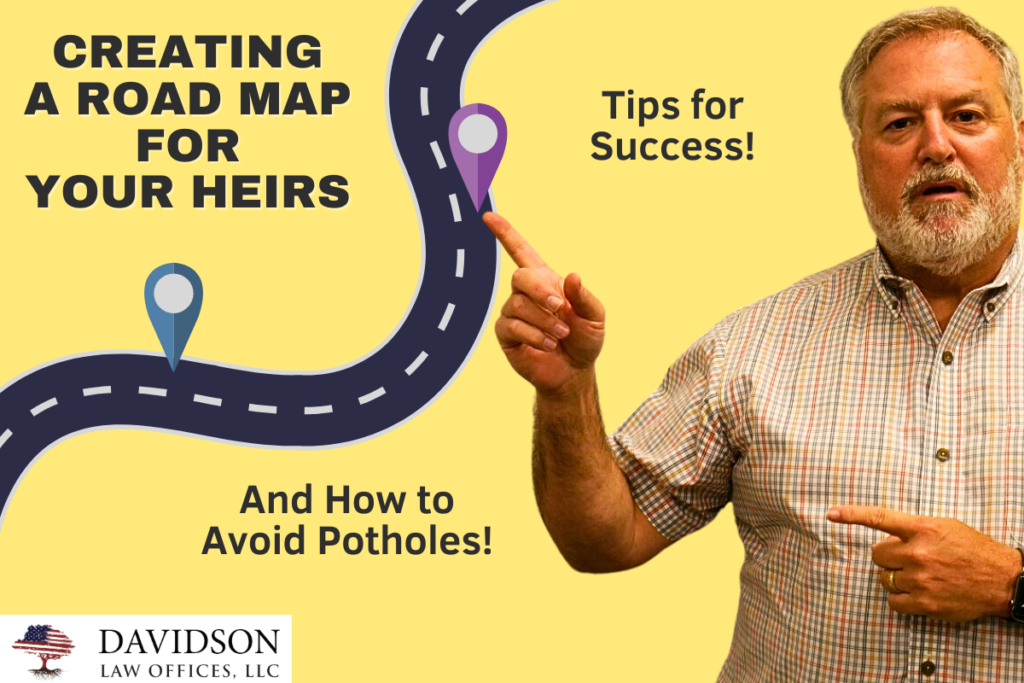Hey there, fellow planners and forward-thinkers! Today, we’re shaking things up a bit. We’re shifting gears from our usual discussions about VA benefits to delve into the realm of estate planning and organization. Now, stick with me because trust me, this discussion about creating a road map going to be valuable.
Remember the days when embarking on a trip meant unfolding a paper map? Ah, nostalgia. Nowadays, with technology at our fingertips, we rely on Google Maps or iPhone Maps to navigate our journeys. But today, we’re not talking about road trips; we’re talking about creating a road map our loved ones if and when we pass. Let’s dive into how technology has revolutionized the way we create a road map for our heirs.
How to Create Your Road Map
First things first, organization is key. As my eighth-grade social studies teacher drilled into my head (along with the fact that I was disorganized), success hinges on being organized. So, let’s get down to business.
When crafting your road map, you’re essentially laying out a plan. This plan should encompass your personal preferences. Yes, it might feel a bit morbid, but it’s essential. Do you prefer burial or cremation? Have you considered anatomical gifts? What about your funeral preferences? Do you envision a traditional ceremony or a celebration of life? It’s crucial to articulate these preferences clearly. After all, you want to spare your heirs the emotional burden of guessing your wishes.
I often joke with my sons about my Viking funeral fantasy. But in all seriousness, your preferences matter. Alongside these preferences, compile a comprehensive list of your contacts. From your accountant to your attorney, ensure your heirs know who to reach out to in times of need. Include details about your bank accounts and online passwords, but remember to keep this information secure.
Life insurance policies are often a point of contention during estate settlements. Don’t leave your heirs scrambling to locate them. Obtain copies of your policies and ensure your loved ones know where to find them when the time comes.
Now, let’s talk legal documents. Your advanced directives, durable powers of attorney, and last will and testament are crucial components of your road map. Ensure these documents are readily accessible, especially to healthcare providers and financial institutions. Avoid locking them away in a bank’s safe deposit box, as accessibility can become an issue.
Physical property, including real estate and personal belongings, also warrants attention. Whether it’s a vacation home or a prized coin collection, make sure your heirs know where to find these assets. Don’t leave them hidden away in obscure places; communication is key.
Remember, the goal here is to alleviate stress and uncertainty for your heirs. By creating a clear road map, you empower your loved ones to honor your wishes and navigate the estate settlement process with confidence. Take the time to organize your affairs and communicate your preferences effectively. Your road map is not just a guide for your heirs; it’s a gift of clarity and peace of mind during a challenging time.
Contact Us So We Can Help!
If you need assistance with estate planning, wills, trusts, and more, complete this form or give us a call at (229) 226-8183. If you’d like to see this blog in video format, you can watch it below. Please be sure to SUBSCRIBE to our YouTube channel and click the bell notification button so that you’re notified each time we publish a new video.

